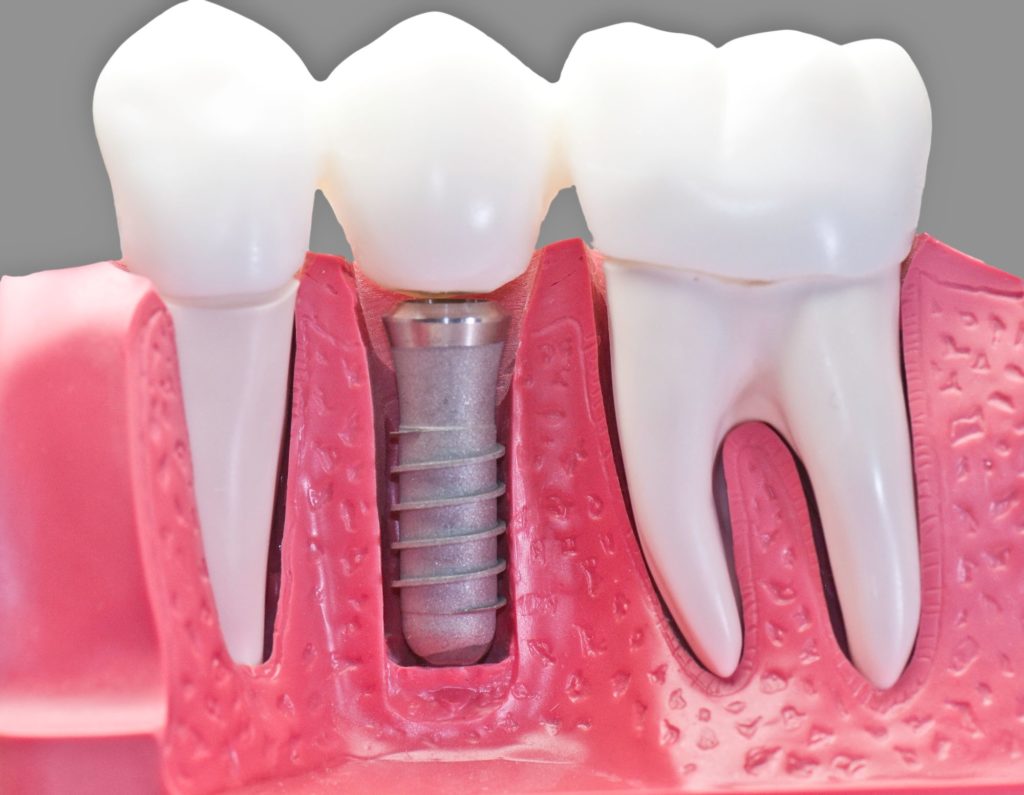Patients with lost or missing teeth often go through life sidelining their smiles. Not only can it make a person feel more self-conscious, but damaged dentition can also lead to more health problems in the future! Dental implants provide patients with a safe and long-lasting way to repair dental damage. After reviewing dental implants pros and cons, the Meredith Davis, DDS team can help you determine if it’s the right method for you.
It’s not always easy knowing which treatments are best for your health. That's why the clinicians at the offices of Meredith Davis, DDS, aim to educate patients on the importance and effectiveness of every procedure. If you are looking for a Richardson, TX dental office and want to learn more about dental implants, contact us today. We’re ready to schedule a consultation to discuss treatment plans that will keep you grinning!
Investigating Dental Implants
Replacing lost or broken teeth is something humans have been doing for millennia. From 5,500-year-old Egyptian shell implants to George Washington’s imitation incisors, people have put a lot of effort into finding ways to maintain the look of their mandibles. Fortunately, medical science has come a long way and dental implant treatments are one of the most successful and beneficial procedures available.
Most patients know that, like an iceberg, a good part of teeth hide beneath the surface. Dentition is kept in place by the root, and implants mimic this by creating an anchor point embedded in the jaw for a cap or crown to sit on. Created from titanium, they help to stimulate bone growth and make a strong and permanent base with a crown that may replicate the look and feel of your natural tooth almost perfectly.
Who Can Benefit
Dental implants are an excellent treatment for not only missing or cracked dentition but a number of related problems as well. Mouths aren’t just for eating, and oral health issues can affect how people chew, look and even speak. Patients can benefit from the procedure if they are experiencing any of the following symptoms:
- Missing teeth
- Cracked/broken dentition
- Sunken facial appearance
- Ill-fitting dentures
- Loose bridgework
- Pain when chewing
- Problems speaking
- Anxiety about appearance
During your consultation, our staff will take a look at your persistent oral health issues. We can determine if the dental implant procedure fits with your lifestyle, or if alternative methods might be more appropriate. If you decide that this permanent solution is the best treatment, your dentist will review the process with you and may even begin the initial steps of the procedure.
The Dental Implant Process
Inserting dental implants is fairly straightforward. To start, clinicians will take x-rays to get the most complete picture of your current dentition and begin to formulate a treatment plan. Checking bone density is important since the implant needs a firm spot in the jaw so it will anchor securely. If bone density is an issue, you may be required to undergo grafting as the principal step.
If a bone graft is necessary, your dentist will augment the insubstantial areas to prepare them for implantation. Recovery from such a procedure may take from two to eight weeks. After the affected area is determined to be strong and ready for insertion, patients should expect the following when undergoing a dental implant treatment:
- Necessary Extractions: If there are damaged or broken teeth, these will need to be removed before the implant process can take place. Most dentists will do this at the same time as the implant procedure.
- Implant Insertion: A dental implant is embedded in the jaw below the gumline. Titanium implants interact well with bone, and promote a process called “osseointegration.” When this occurs, bone grows around the implant, encasing it and creating a durable anchor that only gets stronger the more you chew!
- Securing the Abutment: While the implant acts as the tooth’s root, an abutment is the actual fixture where the crown will be attached. A special cap is placed to ensure the area won’t become overgrown as the implant heals.
- Attaching the Crown: Especially crafted to look like the teeth they are replacing, crowns are added to take the place of missing dentition. While durable, crowns may need to be replaced after about a decade, though the titanium implant is secured in place for good!
Once the entire treatment is complete, it becomes very difficult to identify an implant after it has healed. However, it is important to note that the care plan requires patients to heal fully before the next step takes place. For those needing bone grafts, the entire treatment may take six months to a year to complete. Make sure you discuss the time frame with your dentist to make sure it is a method you can dedicate some time to.
Crown Considerations
While a permanent dental implant gets to the root of the problem, without crowns there will still be something missing in your mouth. Using an implant to repair absent or damaged dentition still means the spot needs to be filled with something. Crowns are meant to replace your teeth, but they also come in different varieties that have their own pros and cons, such as:
- Porcelain: This material looks and feels most like natural teeth, but may be prone to chipping if patients aren’t careful.
- Metallic: Some non-reactive metals including gold and stainless steel make exceptionally durable replacements, though tier coloring makes them highly noticeable.
- PFM (porcelain-fused-to-metal): This composite offers patients the natural look of porcelain crowns with some of the strongest metal versions offered.
- Zirconia: These types of crowns are gaining in popularity since they have the look of porcelain with a similar durability when compared to metal crowns. Some dentists can even make them in-office!
- Bridges and Dentures: When more than one tooth needs to be replaced, dentists may suggest inserting fewer implants and securing a row of crowns with a bridge. Some patients may even have their dentition entirely replaced, securing their dentures directly to the implants themselves!
When choosing a crown, it’s important to think about both the durability and cosmetic characteristics of your options. Even the strongest materials still have a lifespan of around five to seven years. Most patients seek a beautiful, natural and refreshed-looking smile. Even so, some people like the added flair a shining gold tooth brings to the table!
Main Benefits of Dental Implants
Examining dental implant pros and cons helps a lot of patients find they have much to gain from the treatment. Many clients get excited about the procedure just at the thought of having a complete set of teeth again. Other benefits include:
- Return of Self Confidence: A beaming grin can do a lot for a person’s morale, especially when the procedure repairs sunken features the missing dentition had caused. Others find improved speech makes public and private conversations that much more enjoyable, too!
- Effective Proxy for Natural Teeth: Implant treatments do not only look like you original teeth, they also feel and act like natural ones as well. In addition, they stimulate jaw bone growth, where traditional dentures degrade bone density over time.
- Long-Lasting Repair: The titanium implant itself is designed to remain permanently secured into your jaw bone. Since only the crowns (and possibly abutments) need to be replaced, dental implants are truly a life-long solution!
Is the Treatment Right For You?
There are some mitigating factors that may reduce the effectiveness of the dental implant procedure, meaning the treatment plan isn’t always the best option. Most important, there are several factors that make some patients poor candidates, such as:
- Poor jaw bone density
- Receivers of radiological therapy (especially in the head and neck)
- Periodontal/gum disease
- Medications that compromise the immune system
- Smoking/tobacco use
- Uncontrolled illnesses (diabetes, hemophilia)
Scheduling conflicts cause concern for a lot of patients. Because affected areas need to heal for some time after each step of the procedure, it means multiple trips to the dentist, occasionally with months between visits. Such time constraints are too limiting, and the idea of healing for weeks at a time has caused more than one person to look at alternative treatments.
Some clients find the results to be unsatisfactory, too. In some cases, patients with PFM crowns find that, as gums recede, an unsightly grey coloring appears at the gumline. Patients may also abuse their replacement teeth thinking they are almost invulnerable, which may lead to cracking or chipping their crowns. Others are taken back by a higher upfront cost, especially when compared to dentures or other non-surgical options.
In many cases, our clients find that there are far more advantages than disadvantages when it comes to dental implants. Whether you have recently been the victim of an accident that has cost you a tooth, or have been suffering from missing or damaged dentition for some time, Meredith Davis, DDS is here to help. Richardson, TX residents should feel free to contact us to schedule their dental implant consultation today!


